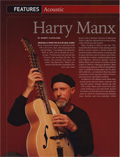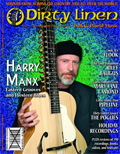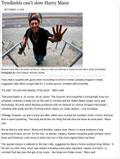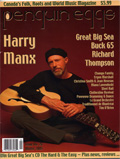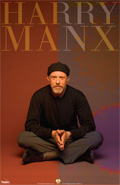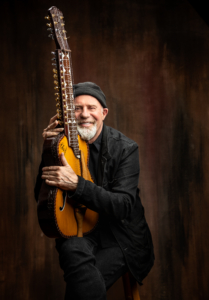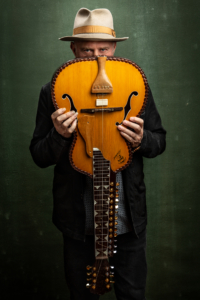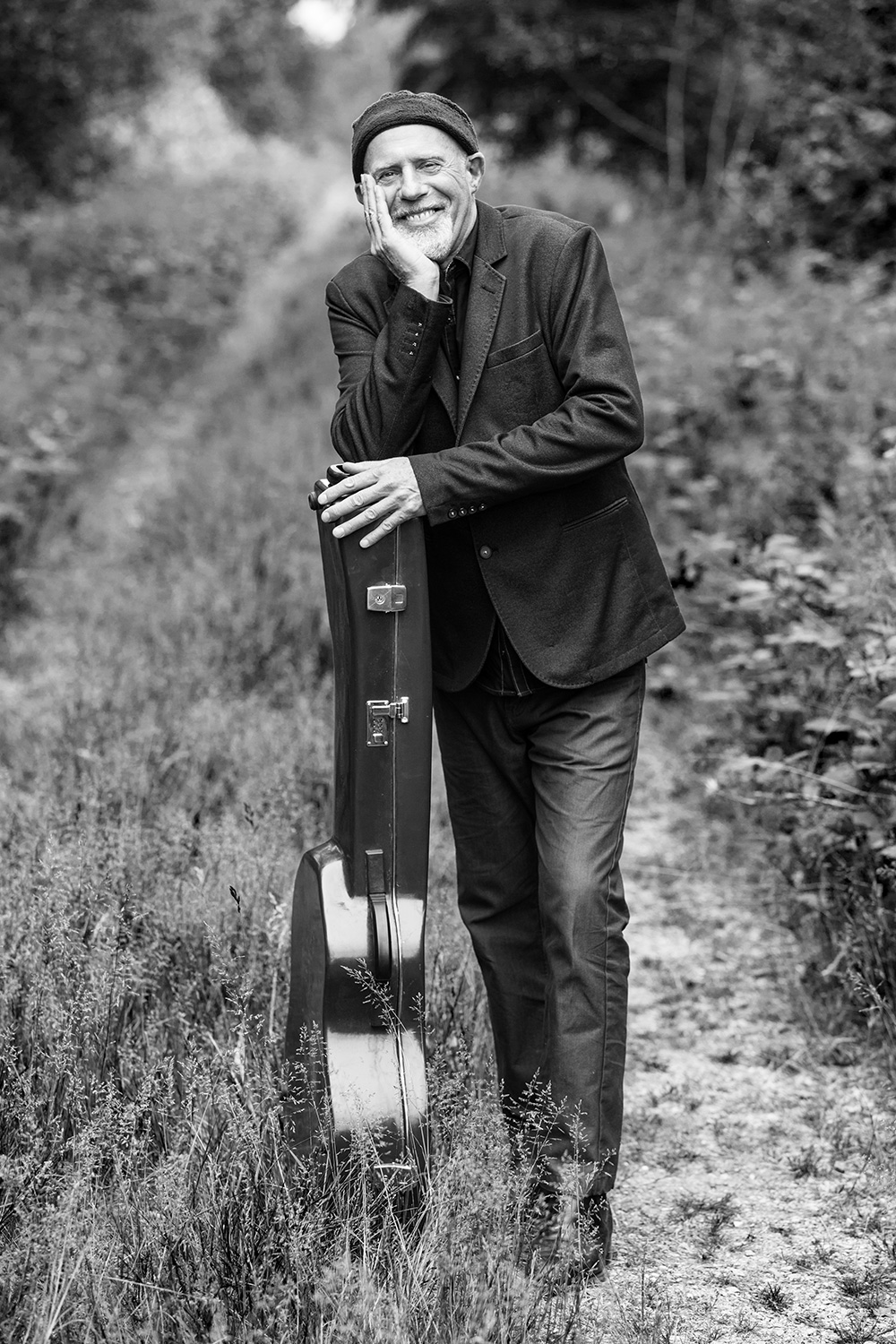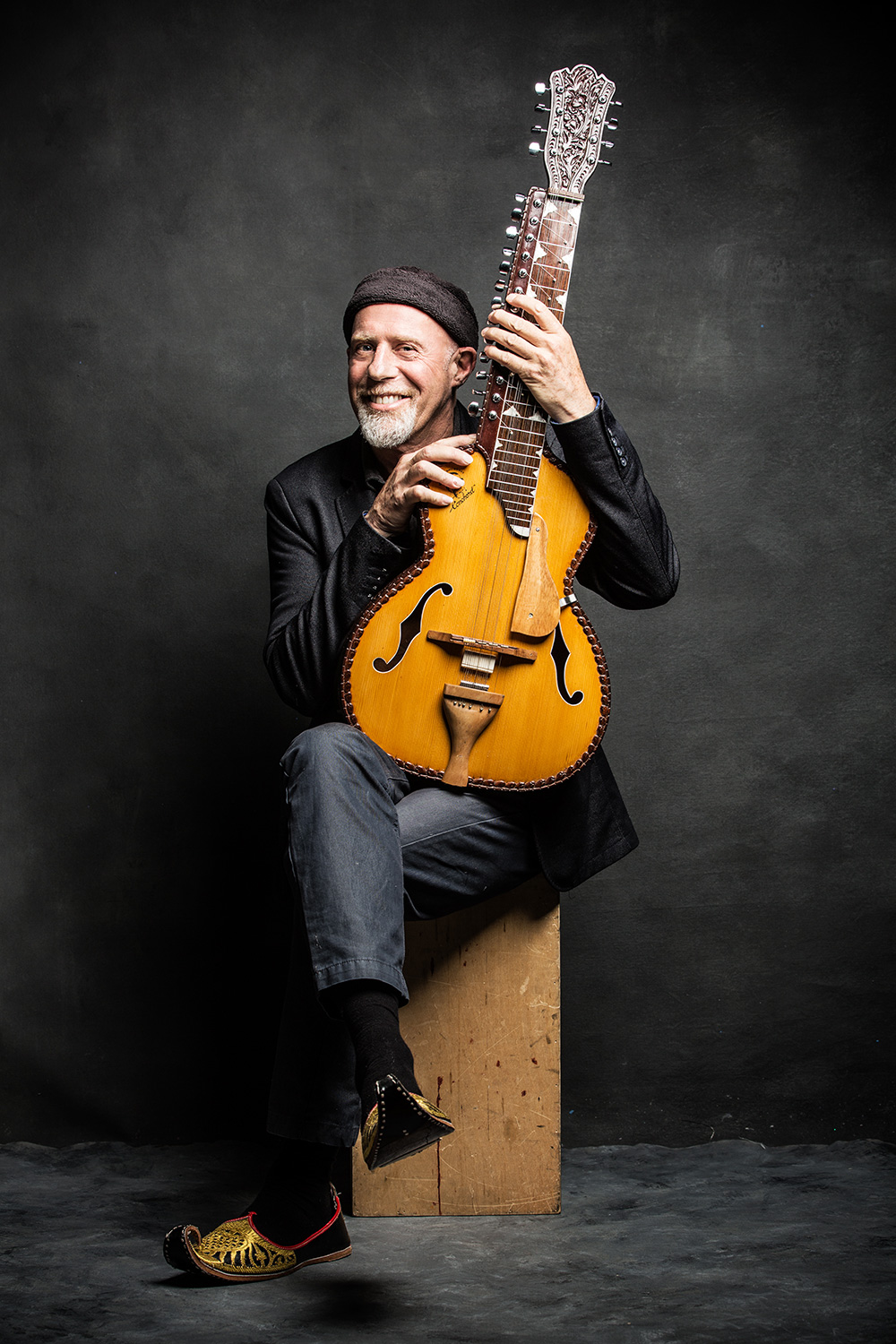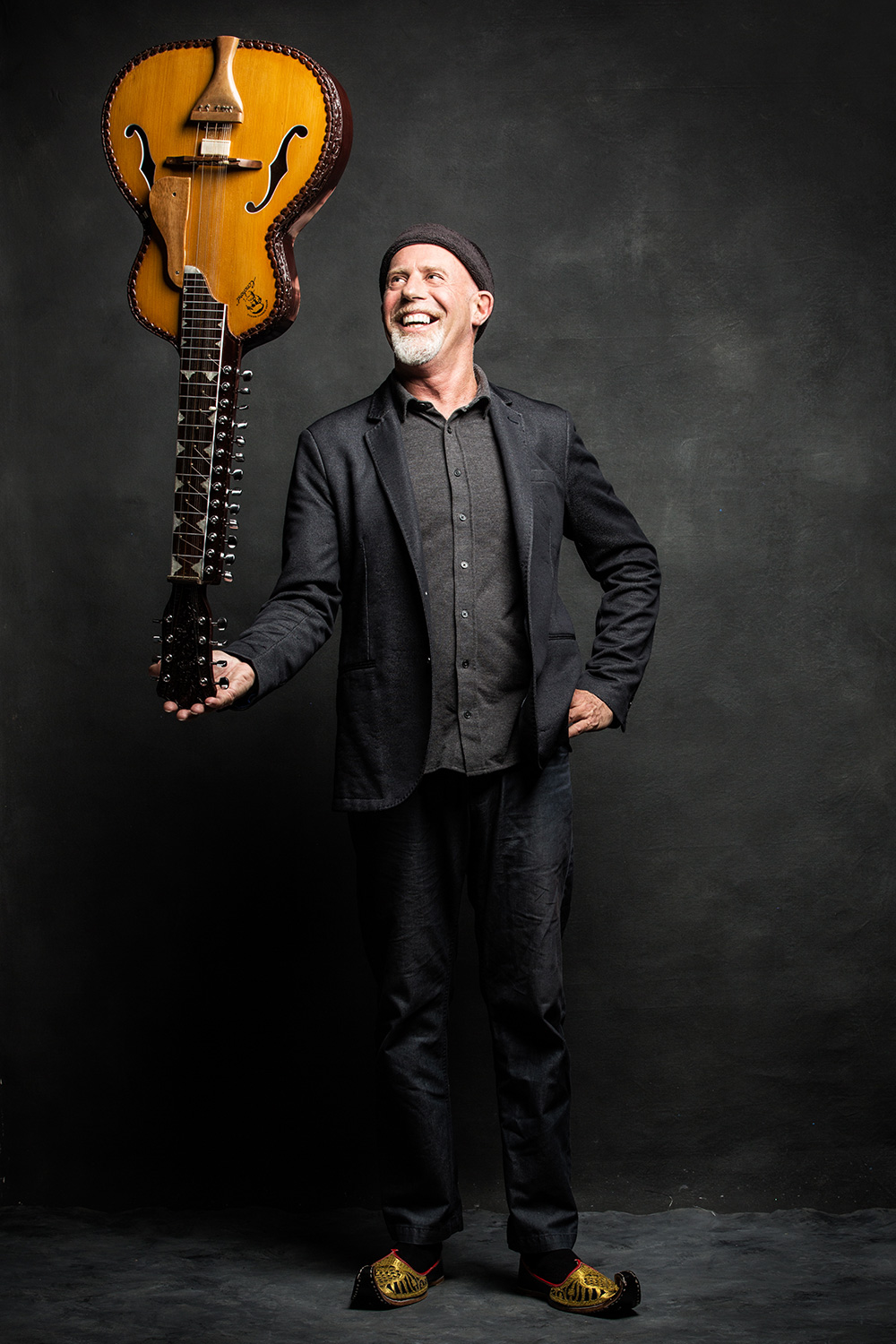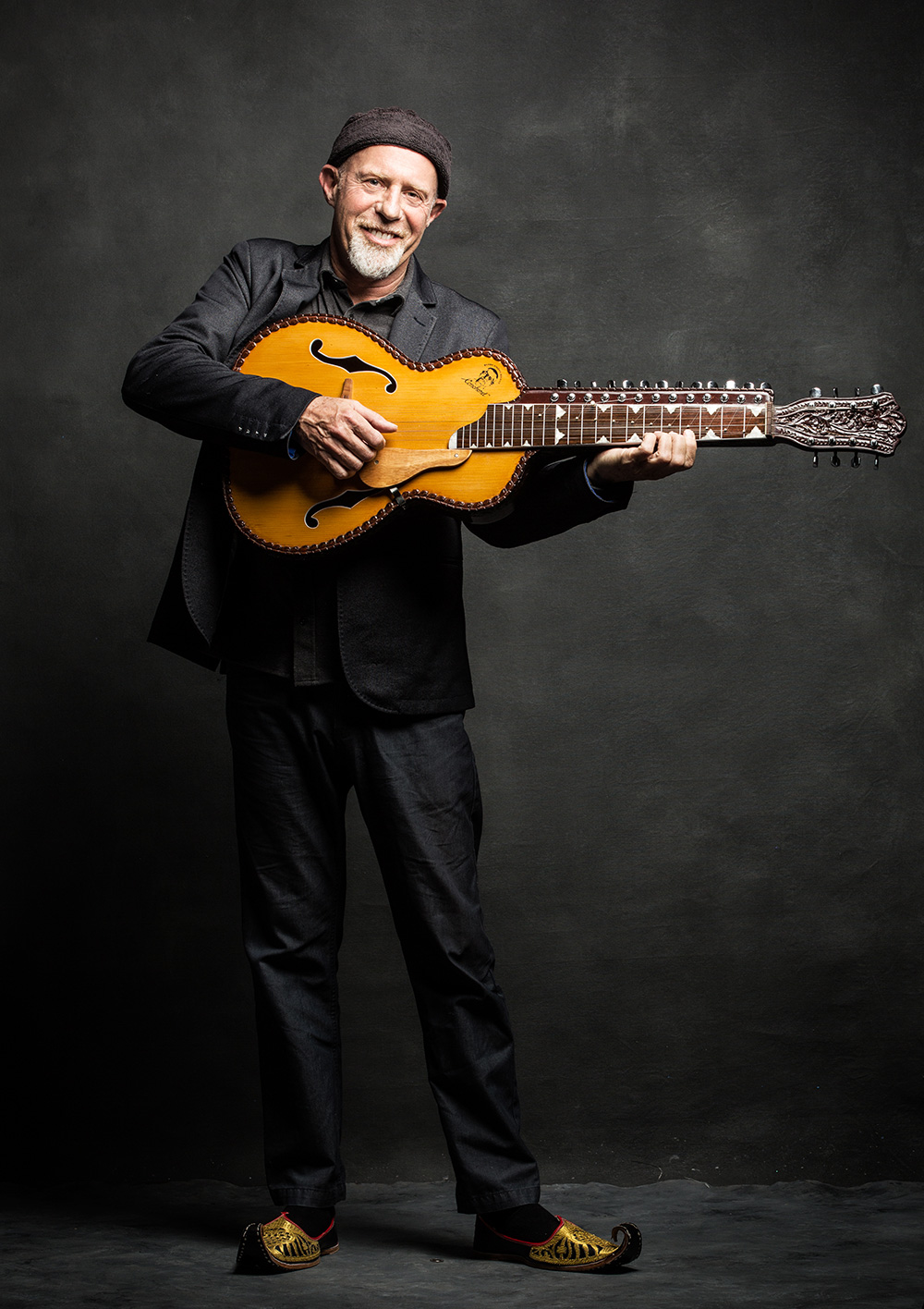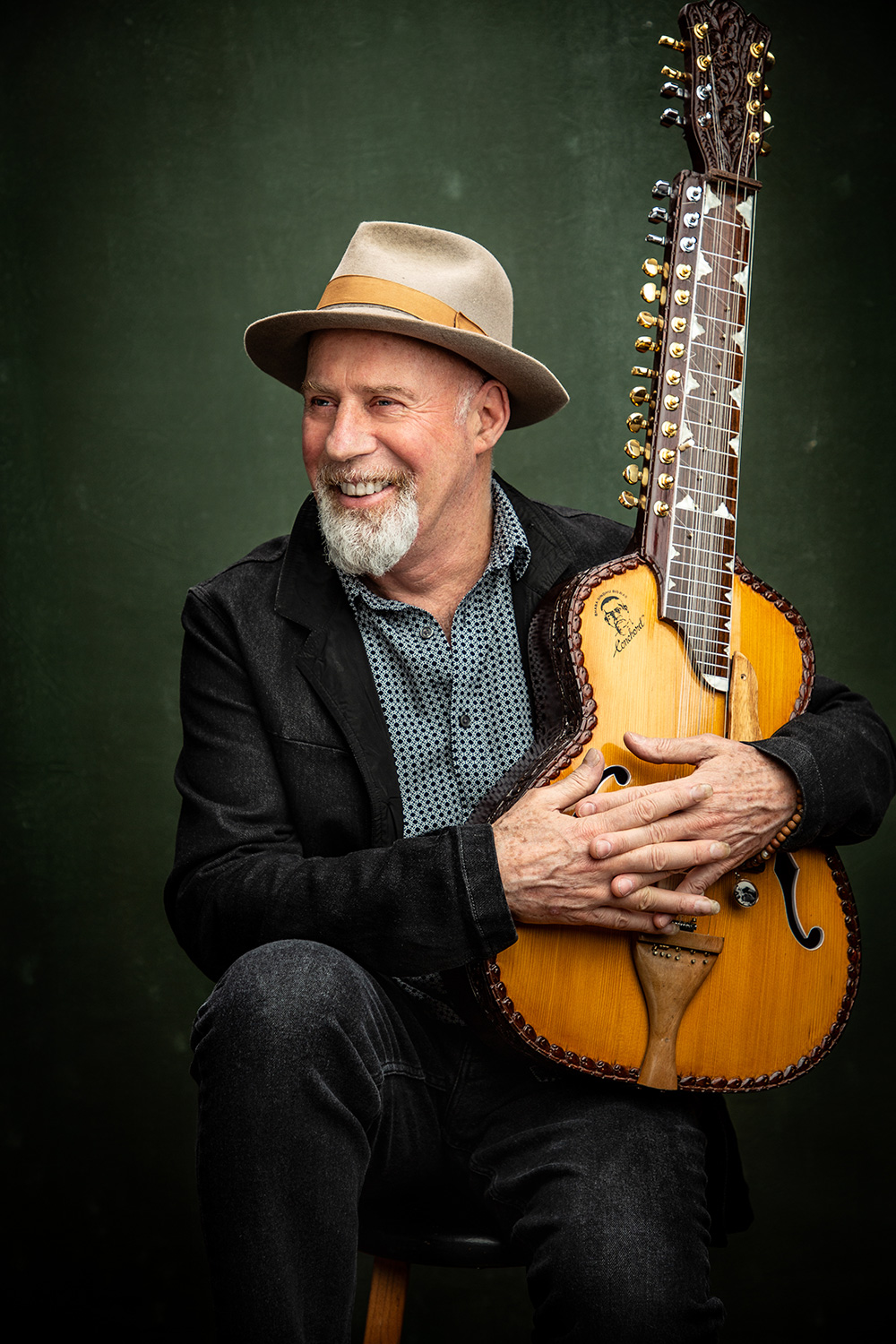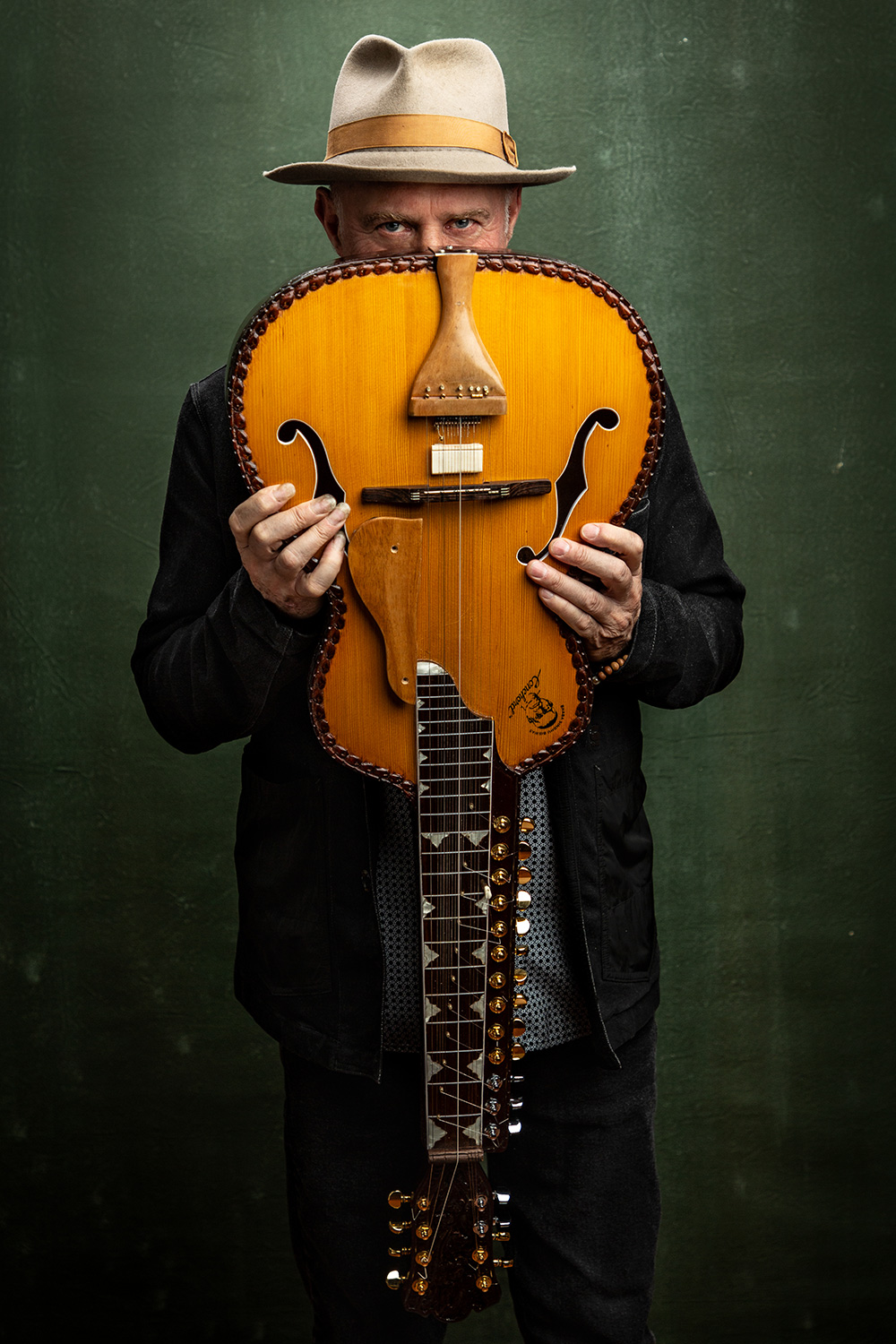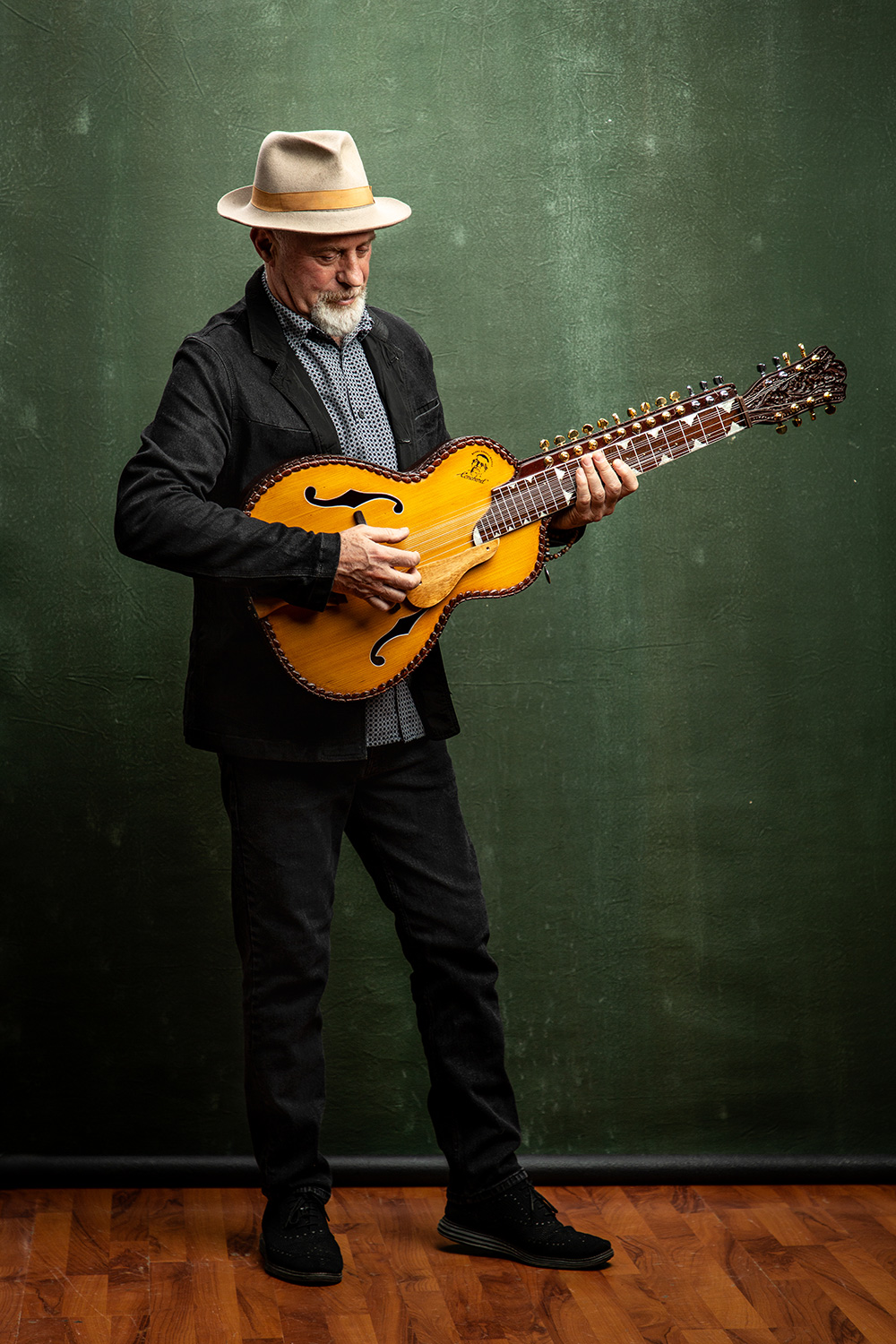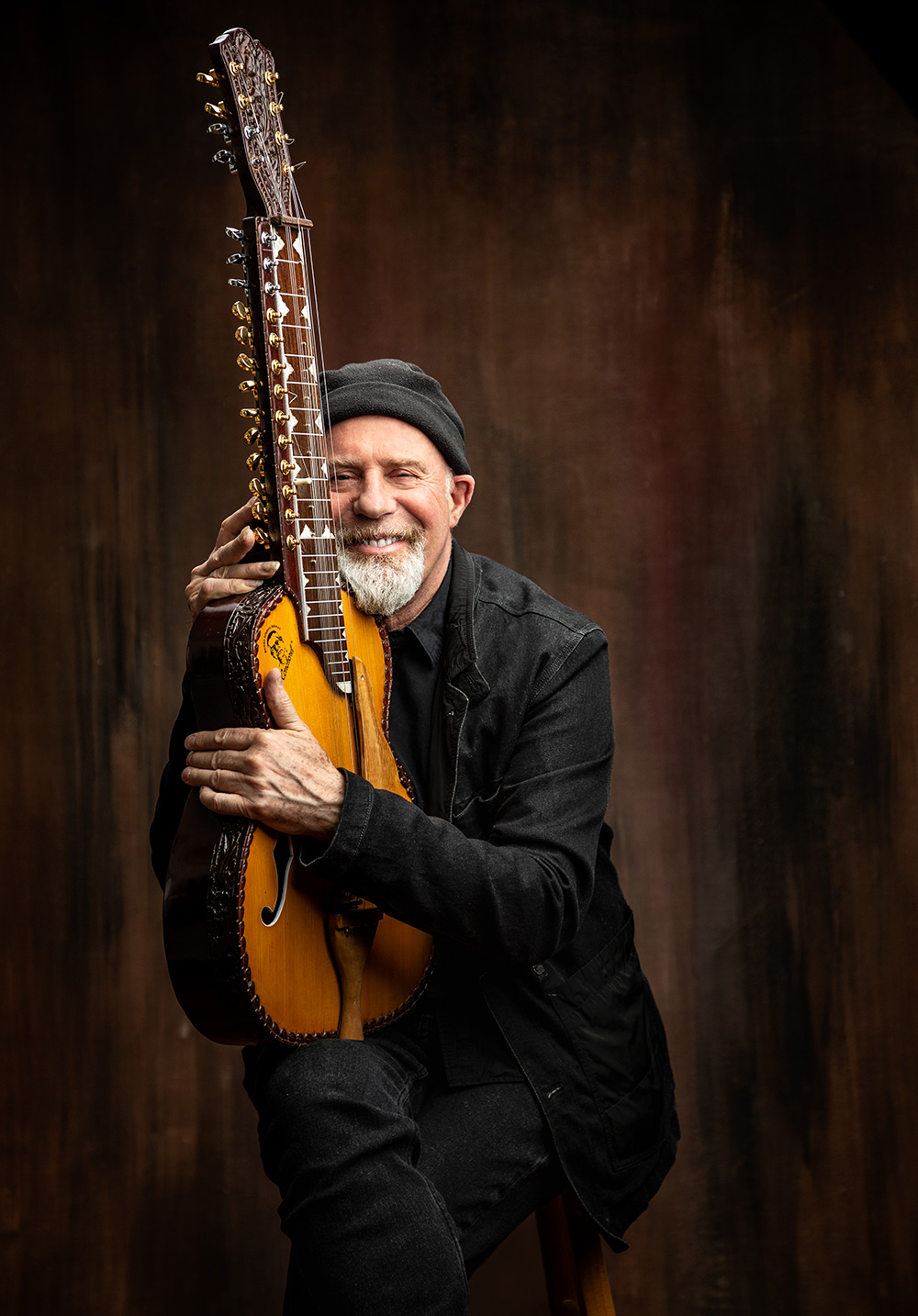PRESS/EPK
Biography
Harry Manx has been dubbed an “essential link” between the music of East and West, creating musical short stories that wed the tradition of the Blues with the depth of classical Indian ragas. His unique sound is bewitching and deliciously addictive to listen to.
Born on the Isle of Man, Manx spent his childhood in Canada and left in his teens to live in Europe, Japan, India and Brazil. He honed his hypnotic live show on street corners, in cafes, bars and at festivals. But it was Indian music that captured his attention and in the mid 80s he began a five-year tutelage with Rajasthani Indian musician Vishwa Mohan Bhatt (Grammy winner with Ry Cooder for A Meeting by the River). Receiving the gift of Bhatt’s custom-made, self-designed Mohan Veena (a 20-stringed sitar/guitar hybrid) was the catalyst for Harry to forge a new path with his now signature east-meets-west style of music. While the mohan veena itself is beyond exotic, Manx uses it within traditional Western sound structures.
A successful touring performer, Manx has brought his “breathtaking” solo shows across Canada and into the USA, Australia, and Europe. He has appeared at many prestigious festivals, world-class theatres, concert halls and infamous Blues clubs around the globe. Playing the Mohan Veena, lap steel, harmonica, stomp box, and banjo, Manx quickly envelops the audience into what has been dubbed “the Harry Zone” with his warm vocals and the hauntingly beautiful melodies of his original songs.
It’s in the live setting, Manx says, that the bridge between “heavenly” India and “earthy” American blues is most effectively built. “Indian music moves inward,” he explains. “It’s traditionally used in religious ceremonies and meditation, because it puts you into this whole other place. But Western music has the ability to move out, into celebration and dance. So when we play the Indian stuff on stage, it has the tendency to draw people into something really deep; they’ll get kind of quiet and spacey. Then we’ll play some more Western music, and it grounds them once more, they sort of come out of the mood the Indian music had put them in and get into the performance. I love to see that working — that effect on the audience. My goal has always been to draw the audience as deep as possible into the music.”
Manx is a prolific artist, releasing nine albums in a eight-year span with no signs of stopping. He has received seven Maple Blues Awards and his mantel shelf also holds honours from the Canadian Folk Music Awards, Vancouver magazine Georgia Straight, and the South Australia Blues Society. He received CBC Radio’s Great Canadian Blues Awards for 2007 and his albums have garnered five Juno nominations.
Blend Indian folk melodies with slide guitar blues, add a sprinkle of gospel and some compelling grooves and you’ll get Manx’s unique “mysticssippi” flavour. It’s hard to resist, easy to digest and keeps audiences coming back for more.
Heard on the Street
“Manx’s real skill lays in creating a rare musical place where blues, country, folk and Indian classical music co-exist as some spirit force.”
“Watching Harry play tonight I feel like I learned something new …. “
“Canadian guitarist and singer-songwriter Harry Manx is an artist that critics have occasionally had a hard time getting their minds around. His unique amalgam of blues and other American roots music, classical Indian forms, and bits of rock, pop, and folk makes him difficult to pigeonhole, and self-appointed gatekeepers of those traditions sometimes bemoan his lack of purity, stubbornly missing the point. But Manx’s trip is really quite easy to grasp: He’s an accomplished and adventurous lap-slide guitarist – whether playing a National resonator, a solidbody lap-steel, a modified banjo or cigar-box guitar, or his signature 20-string Mohan Veena – and a compelling singer with a rich, warm, and soulful voice who writes intelligent and compassionate songs and puts them over with heartfelt conviction.”
“A modern day troubadour, Canadian-born Manx sings with an intimate, quiet warmth that makes his shows mesmerizing. The subtle interplay between the haunting notes of the sitar and the gentle, rhythmic groove of the blues gives his songs a beautiful sensuality that defies comparison.”
“Canada’s most versatile and expressive blues player”
“Canadian guitarist Harry Manx knows his instrument the way most men know their television remote controls.”
“Like a lot of top singer songwriters Harry projects an intimacy & old friend quality from artist to listener … “
“While most musicians are content to work within the accepted boundaries of their chosen style, lap-slide guitarist Harry Manx likes to colour way outside the lines. His crayons? Soulful, raspy vocals, poetic lyrics, and the whining drones and mysterious melisma of Indian music … Manx conjures songs that are as bewitching as they are unique.”
“At this point, it’s practically impossible to add anything new to the blues. But you can still wring a new tear out of the good ol’ twelve-bar onion by adding something even older than the blues – Indian classical music… Manx’s mix of folksy Americana and trance-inducing traditional ragas truly pushes the boundaries of a genre long thought past innovation.”
“Harry Manx is the master of your chilled-out oriental vibe, thanks to his proficiency on instruments like the mohan veena; and that smoky voice of his is akin to getting a relaxing massage without skin contact.”
“The making of an artist is as abstract as the canvas that he or she paints. Words pale in grey tones when attempting to describe this aspect of brilliance. No, one has to listen with eyes closed gently, as if in meditation, concentrating on the algorithmic patterns that emerge. The ability to create such a living work comes from the desire to transcend, to go far beyond the reaches of the imaginable universe. For Harry Manx, bluesy guitarist and singer, this meant going to the far side of the earth in search of his musical identity. It was in Europe that he discovered his own blues. In Japan he discovered his soon-to-be guru of the slide guitar: Vishwa Mohan Bhatt who played the veena. He went to live in Rajasthan at the feet of this guru, learning the complexities of the Mohan veena, eventually learning how to blend his Canadian blues with the slide of the desert. And now he’s doing something totally unique and original, yet accessible. He’s quickly become a driving force on the Canadian music scene.”
Downloads
Past performances include:
Chicago Blues Festival
Montreal Jazz Festival
New York City Guitar festival (tribute to Bruce Springsteen 04, tribute to Bob Dylan 07)
Cognac Blues, France
World Music Sines, Portugal
The Durian Theatre, Singapore
Ongoing tours in the US, Canada, Australia & Europe.
Quotes
“Manx’s real skill lays in creating a rare musical place where blues, country, folk and Indian classical music co-exist as some spirit force.”
“Watching Harry play tonight I feel like I learned something new …. ”
“Canadian guitarist and singer-songwriter Harry Manx is an artist that critics have occasionally had a hard time getting their minds around. His unique amalgam of blues and other American roots music, classical Indian forms, and bits of rock, pop, and folk makes him difficult to pigeonhole, and self-appointed gatekeepers of those traditions sometimes bemoan his lack of purity, stubbornly missing the point. But Manx’s trip is really quite easy to grasp: He’s an accomplished and adventurous lap-slide guitarist – whether playing a National resonator, a solidbody lap-steel, a modified banjo or cigar-box guitar, or his signature 20-string Mohan Veena – and a compelling singer with a rich, warm, and soulful voice who writes intelligent and compassionate songs and puts them over with heartfelt conviction.”
“A modern day troubadour, Canadian-born Manx sings with an intimate, quiet warmth that makes his shows mesmerizing. The subtle interplay between the haunting notes of the sitar and the gentle, rhythmic groove of the blues gives his songs a beautiful sensuality that defies comparison.”
“Canada’s most versatile and expressive blues player”
“Canadian guitarist Harry Manx knows his instrument the way most men know their television remote controls.”
“Like a lot of top singer songwriters Harry projects an intimacy & old friend quality from artist to listener … ”
“While most musicians are content to work within the accepted boundaries of their chosen style, lap-slide guitarist Harry Manx likes to colour way outside the lines. His crayons? Soulful, raspy vocals, poetic lyrics, and the whining drones and mysterious melisma of Indian music … Manx conjures songs that are as bewitching as they are unique.”
“At this point, it’s practically impossible to add anything new to the blues. But you can still wring a new tear out of the good ol’ twelve-bar onion by adding something even older than the blues – Indian classical music… Manx’s mix of folksy Americana and trance-inducing traditional ragas truly pushes the boundaries of a genre long thought past innovation.”
“Harry Manx is the master of your chilled-out oriental vibe, thanks to his proficiency on instruments like the mohan veena; and that smoky voice of his is akin to getting a relaxing massage without skin contact.”
“The making of an artist is as abstract as the canvas that he or she paints. Words pale in grey tones when attempting to describe this aspect of brilliance. No, one has to listen with eyes closed gently, as if in meditation, concentrating on the algorithmic patterns that emerge. The ability to create such a living work comes from the desire to transcend, to go far beyond the reaches of the imaginable universe. For Harry Manx, bluesy guitarist and singer, this meant going to the far side of the earth in search of his musical identity. It was in Europe that he discovered his own blues. In Japan he discovered his soon-to-be guru of the slide guitar: Vishwa Mohan Bhatt who played the veena. He went to live in Rajasthan at the feet of this guru, learning the complexities of the Mohan veena, eventually learning how to blend his Canadian blues with the slide of the desert. And now he’s doing something totally unique and original, yet accessible. He’s quickly become a driving force on the Canadian music scene.”






